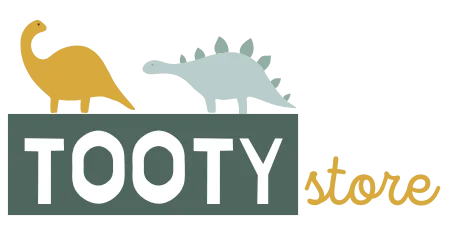Table of Contents
ToggleIn today’s tech-savvy world, students have a powerful tool at their fingertips: educational apps. Gone are the days when learning meant dusty textbooks and endless lectures. Now, it’s all about interactive platforms that make studying feel like a game. With the right app, students can transform their study sessions from snooze-fests into engaging adventures.
Overview of Educational Apps for Students
Educational apps transform how students approach learning. These applications cater to various subjects, making study sessions more interactive than traditional methods. Engaging features, such as quizzes, videos, and gamification elements, capture students’ attention effectively.
Popular apps like Kahoot and Quizlet allow students to enhance their knowledge through playful competition, while platforms such as Duolingo or Khan Academy offer specialized lessons. Accessibility concerns diminish as students can learn on multiple devices, including smartphones and tablets.
Customization becomes a hallmark of many educational apps. Students can set personal goals and track their progress over time. Teacher dashboards in apps like Seesaw provide a way for instructors to monitor student performance and adapt lessons accordingly.
Data shows that students using educational apps tend to display improved retention of information. For instance, a study conducted by the University of Michigan indicates that app-based learning can increase comprehension by up to 25%. Groups of students often show higher motivation levels when engaging with interactive content rather than traditional study methods.
Overall, educational apps embody innovative methods for delivering knowledge and skills. Their use promotes a dynamic learning environment, encouraging exploration and a love for education among students.
Types of Educational Apps

Educational apps come in various forms, each serving a unique purpose in enhancing student learning.
Learning Management Systems
Learning Management Systems (LMS) streamline educational processes. These platforms allow educators to distribute course materials, track student progress, and manage assignments effectively. Data indicates that institutions using LMS report increased efficiency in course administration. Popular LMS options include Moodle and Canvas, which offer user-friendly interfaces and customizable features. Students can access lectures, submit work, and communicate with peers all in one location. Additionally, analytics tools within LMS provide insights into student performance, allowing for targeted interventions.
Interactive Learning Apps
Interactive learning apps engage students through gamification and immersive experiences. These apps cultivate a hands-on approach to education, capturing learners’ attention while reinforcing concepts. For instance, platforms like Kahoot and Quizlet infuse game-like elements, making quizzes enjoyable and competitive. Research suggests that integration of interactive apps can enhance retention of information by improving engagement levels. Students often report a stronger grasp of subjects when using these tools in tandem with traditional study materials. Enhancements in motivation often lead to better academic outcomes.
Subject-Specific Apps
Subject-specific apps focus on targeted academic areas. These applications cater to distinct disciplines, providing tailored content and resources. For instance, Duolingo excels in language learning with customized lessons, while Khan Academy covers a wide range of subjects, from math to sciences. Studies show that users of subject-specific apps gain deeper comprehension in targeted subjects. These apps often include exercises, tutorials, and practice tests. The versatility offered in these applications ensures that students receive specialized support according to their individual learning needs.
Benefits of Using Educational Apps
Educational apps revolutionize the learning experience for students by providing interactive and personalized methods of education. They enhance engagement and allow personalized learning journeys, ensuring students thrive academically.
Enhanced Engagement
Students find educational apps engaging due to their interactive features. Gamification elements, such as quizzes and rewards, motivate them to learn actively. Users also enjoy interactive lessons, which often include videos and dynamic quizzes, transforming traditional studying into enjoyable activities. Research shows that students using these apps experience higher levels of motivation, contributing to better information retention. In fact, studies indicate comprehension can rise by 25% for app users. Thus, educational apps create an exciting atmosphere that promotes active learning.
Personalized Learning
Personalization in educational apps addresses individual learning needs. Many apps allow students to set personal goals, enabling tailored learning experiences. Customizable features adapt the content to fit diverse learning speeds and styles. Progress tracking empowers students to monitor their achievements and adjust their study habits accordingly. The adaptability of these apps caters to various subjects, ensuring each student receives relevant support. As a result, personalized learning through educational apps enhances the overall educational experience.
Selecting the Right Educational App
Selecting an educational app requires careful consideration of several factors. These factors help ensure that the app effectively meets individual learning needs and engages students meaningfully.
Factors to Consider
Content relevance matters significantly. Students need apps that align with their subjects and educational goals. User interface should also be intuitive; a clean layout facilitates easier navigation. Additionally, features like quizzes and feedback systems enhance engagement and promote deeper learning. Security and privacy are essential, especially for younger users, so research app policies thoroughly. Lastly, availability on multiple platforms expands access, making it convenient for students to learn anytime, anywhere.
Popular Educational Apps
Khan Academy offers a wide range of subjects, providing comprehensive lessons and practice exercises. Duolingo focuses on language acquisition, turning vocabulary learning into an enjoyable experience through gamification. Quizlet allows users to create study sets, turning flashcards into interactive games for effective memorization. Kahoot delivers a fun quiz platform that fosters classroom engagement and healthy competition. Google Classroom supports educators in managing classroom tasks, streamlining communication, and organizing learning materials efficiently. Each app serves specific educational purposes, catering to diverse learning styles and needs.
Educational apps are reshaping the landscape of learning for students everywhere. By offering interactive and personalized experiences, these tools not only engage but also motivate learners to explore new subjects. The ability to track progress and set individual goals enhances the educational journey, making it more fulfilling.
With a variety of options available, students can easily find apps that cater to their unique learning styles and needs. As technology continues to evolve, the role of educational apps will likely expand, further enriching the educational experience and fostering a lifelong love for learning.




